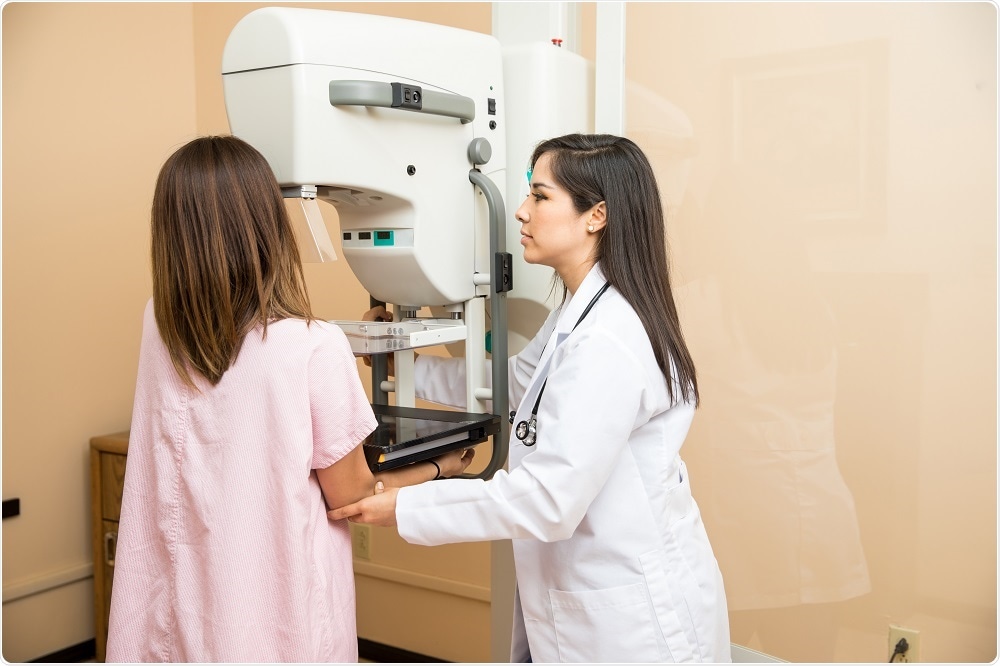A study conducted by the University of Illinois, Chicago, and published this week by the American Association for Cancer Research, indicates that women who experience a false positive after mammogram screening are more likely to delay or avoid future screening appointments.

© antoniodiaz / Shutterstock.com
Mammograms are x-rays of the breasts used to detect breast cancer. They are used to confirm a diagnosis in women who present with symptoms and to screen women who have no signs or symptoms for early disease.
Mammogram screening allows breast cancers to be detected at an early stage, when they are still too small to be felt from the outside. Such early identification of breast cancer is important since early treatment is most likely to be successful. It has been estimated that if annual mammogram screening was performed annually on all women the number of deaths from breast cancer would be reduced by 36%‑44%. Mammogram screening programmes have thus been introduced in many countries.
However, mammograms can also detect small abnormalities, which although not currently malignant have the potential to become so in the future. When such abnormalities are detected further imaging investigations are conducted to confirm the finding and then a biopsy is taken to determine the risk and whether immediate action is required. Often the further investigations indicate that there is not an increased risk of cancer. Such false positives arise in one in every ten mammograms and can cause considerable distress and anxiety among women so affected.
A study has recently been conducted to evaluate the impact of a false positive mammogram screening on a woman's attitude towards subsequent mammography screening.
The study followed over 260 thousand women with over 650 thousand true negative mammogram results and almost 91 thousand false positive mammograms.
Those women with a true negative result were 36% more likely to attend a mammogram screening in the next 3 years than those who had a false positive. Women who did return for a future mammogram screening after having received a false positive delayed doing so significantly longer than women who had a true negative result.
It was estimated that a false positive mammogram result may thus significantly increase the risk of a woman having breast cancer diagnosed at a late stage compared with women who receive true negative mammogram results.
Author Firas Dabbous commented:
It's a delicate balance. We want to detect cancers when they are present, but we do not want to overburden women with a lot of false positives and a workup that is not needed."
Mammogram screening may not be the ideal way to ensure early treatment of breast cancer, but it does save lives and women should be encouraged to continue undergoing regular mammography.
Source
Dabbous FM, et al. Impact of a False-Positive Screening Mammogram on Subsequent Screening Behavior and Stage at Breast Cancer Diagnosis. Cancer Epidemiology Biomarkers and Prevention 2017; Epub ahead of print 9 February. Available at: http://cebp.aacrjournals.org/content/early/2017/02/06/1055-9965.EPI-16-0524